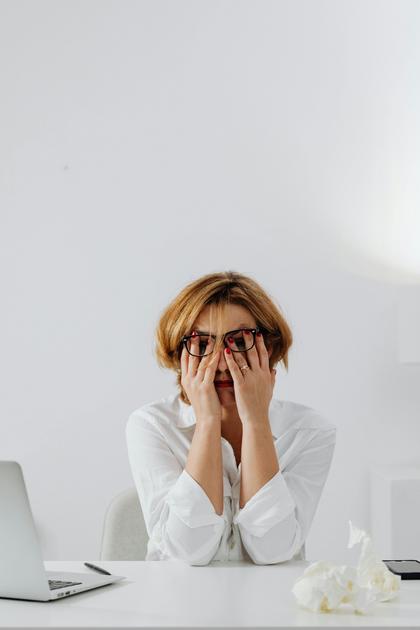Many women are unaware of the early menopause warning signs that can disrupt their sleep patterns. As we age, our bodies go through numerous changes that can affect not only our physical health but also our emotional well-being. It’s common for women in their 30s and beyond to experience symptoms such as insomnia, fatigue, and hormonal imbalances. These signs often go unnoticed, leading to frustration and anxiety. Understanding these changes is crucial for addressing the challenges that arise during this phase of life.
As you navigate this journey, you may find it helpful to explore solutions that resonate with your unique experiences. See how many women are resolving this without heavy medication.
Understanding Menopause and Its Early Signs
Menopause is a natural stage in a woman’s life, signaling the end of her reproductive years. But many are unaware that menopause can start years earlier than they might expect. Understanding the early signs can empower women to take charge of their health. A significant indicator of early menopause often revolves around the hormonal changes that affect various bodily functions, including sleep.
While the average age for menopause is 51, some women start experiencing symptoms in their 30s or 40s. Irregular periods, hot flashes, and mood swings are commonly discussed, but one area that deserves attention is sleep patterns.
The Connection Between Sleep and Hormonal Changes
Our bodies are intricate systems, and hormonal changes can significantly impact sleep quality. As estrogen and progesterone levels fluctuate during the transition to menopause, it can lead to challenges like insomnia or disrupted sleep. When these hormones are out of balance, deep sleep can become elusive, leaving many women feeling tired and unrefreshed.
Additionally, the body’s thermoregulation system responds to these hormonal shifts, often resulting in night sweats and increased wakefulness during the night. Women might wake up drenched and confused, wondering why they can’t seem to find restful sleep anymore.
Common Sleep Issues Women Face in Their 30s
Women in their 30s may start encountering various sleep issues that can be easily overlooked:
- Difficulty Falling Asleep: The brain may remain active even when the body is ready for sleep.
- Frequent Night Wakings: Women might wake up several times during the night, often due to physical discomfort or anxiety.
- Restlessness: Uncomfortable sensations can make it hard to stay asleep, leading to tossing and turning.
- Daytime Fatigue: Lack of quality sleep can cause increased tiredness during the day, affecting productivity and mood.
How Stress Affects Sleep Patterns
Stress is a common companion in today’s world, especially for women juggling multiple roles—caregiver, professional, friend, and more. This stress can seep into your sleep. High levels of stress lead to increased levels of cortisol, the stress hormone, which can interfere with the body’s ability to rest.
It’s important to recognize that while it might feel impossible to escape daily stressors, finding ways to manage them can lead to better sleep. Simple steps, like practicing mindfulness or engaging in gentle exercise, can help alleviate stress and promote a more peaceful night’s rest.
Recognizing the Signs of Hormonal Imbalance
It can be challenging to pinpoint hormonal imbalances without understanding what symptoms to look for. Besides sleep problems, signs include:
- Unexplained Mood Swings: Sudden changes in emotions can feel overwhelming.
- Weight Changes: Women may notice shifts in their weight or gain without changes in diet or activity levels.
- Fatigue: A persistent sense of fatigue that doesn’t improve with rest might signal hormonal issues.
Recognizing these signs is the first step in making proactive changes. It’s crucial to trust your intuition about your body and seek help when needed.
Practical Tips for Better Sleep Quality
To improve your sleep quality, consider the following strategies:
- Establish a Bedtime Routine: Going to bed at the same time each night can signal your body that it’s time to wind down.
- Create a Sleep-Friendly Environment: Make your bedroom a sanctuary by minimizing light and noise.
- Limit Screen Time: Reducing exposure to screens before bed can help your body prepare for sleep.
- Monitor Caffeine and Alcohol Intake: Both substances can disrupt sleep patterns when consumed in the evening.
- Practice Relaxation Techniques: Try activities like deep breathing, meditation, or yoga to help ease into sleep.
The Role of Lifestyle Changes in Managing Symptoms
Making lifestyle changes can dramatically impact how you feel day to day. Integrating regular physical activity, maintaining a balanced diet, and prioritizing hydration can all play a part in managing menopause symptoms. Choosing nutrient-rich foods that support hormone balance can minimize some discomfort.
Physical activity, whether it’s a brisk walk or a flowy yoga session, releases endorphins, which can counteract the stress hormones. Even adding small bursts of activity throughout your day can make a difference. Remember, it’s not about perfection, but progress and finding what feels good for you!
Support Systems: Finding Your Community
No one should go through the experience of menopause alone. Connecting with others who share similar experiences can bring comfort and insight. Whether it’s joining a support group, participating in online forums, or simply talking to friends who understand, finding your tribe can provide encouragement and validation.
Sharing your journey with others can lift the load of emotional stress, reminding you that you are not alone in this. Everyday conversations can unlock solutions and offer new perspectives. Take a step to reach out!
Empowering Yourself with Knowledge
Education is a powerful tool. By understanding menopause and its effects on your body, you can take proactive steps toward health. Consider reading books, articles, or participating in workshops related to menopause. Knowledge equips you with the ability to make informed decisions regarding your health and well-being.
Arm yourself with the understanding that seeking medical advice does not mean you have to accept a one-size-fits-all solution. You’re the expert on your own body, and advocating for yourself can often lead you to the best solutions.
Taking Action: Steps Toward Better Health
It’s easy to feel overwhelmed by symptoms and information. However, taking small, actionable steps can lead to significant changes. Start by choosing one area to focus on—perhaps improving your sleep environment or tweaking your evening routine.
After all, many women are discovering ways to alleviate their discomfort without heavy medications. See here how many women are resolving this without heavy medications.
Every woman’s journey is unique, but together, we can find ways to navigate this transition gracefully. Just remember, you have the power to improve your symptoms and enhance your well-being. This is your time to shine!
Taking steps toward better health doesn’t have to be daunting. Many women have already found relief through simple choices. Seize this opportunity for change!







